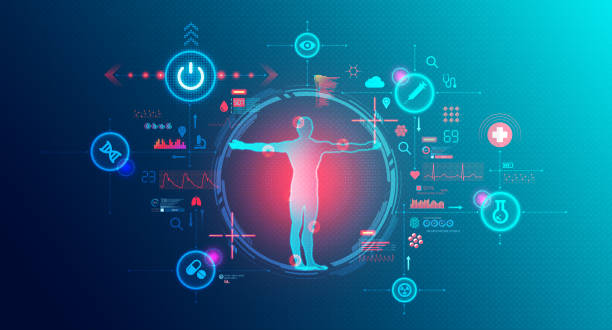The Role of Big Data in Healthcare and Medical Research
The Role of Big Data in Healthcare and Medical Research

In recent years, the healthcare industry has witnessed a revolutionary transformation fueled by the integration of big data analytics. The vast amounts of health-related data generated and collected every day are now being harnessed to improve patient care, streamline healthcare operations, and drive groundbreaking medical research. Big data has emerged as a powerful tool in the field of healthcare, offering unprecedented insights and opportunities for innovation. In this article, we will delve into the role of big data in healthcare and medical research, exploring its applications, benefits, challenges, and potential future impact on the industry.

Understanding Big Data in Healthcare
Big data in healthcare refers to the enormous volume, variety, and velocity of health-related data generated from various sources, including electronic health records (EHRs), medical imaging, wearable devices, genomics, and more. These data sources provide valuable information about patient demographics, medical history, treatment outcomes, and much more. The sheer scale of healthcare data is one of the defining characteristics of big data, and it poses both challenges and opportunities for the industry.
The key components of big data in healthcare can be summarized as follows:
- Volume: Healthcare organizations generate vast amounts of data daily, such as patient records, clinical notes, lab results, and diagnostic images. The ability to handle and analyze such a massive volume of data is a core element of big data in healthcare.
- Variety: Healthcare data comes in various formats, including structured data (e.g., EHRs and lab reports) and unstructured data (e.g., medical notes and images). The diversity of data sources and formats adds complexity to data management and analysis.
- Velocity: Data in healthcare is generated in real time. Patient monitoring, medical devices, and continuous data streams from various sources require the processing of data at high speeds to extract timely insights.
- Veracity: Ensuring data accuracy and reliability is crucial in healthcare. Inaccurate or incomplete data can lead to incorrect diagnoses and treatment decisions, making data quality a significant concern.
- Value: The ultimate goal of big data in healthcare is to derive actionable insights that lead to improved patient outcomes, cost-efficiency, and medical advancements.
Now that we have a foundational understanding of big data in healthcare, let’s explore its applications in the field.
Applications of Big Data in Healthcare

1. Predictive Analytics
Predictive analytics leverages historical healthcare data to forecast future trends and outcomes. By analyzing patient data, healthcare providers can identify high-risk individuals and intervene proactively. For example, predictive models can help in the early detection of chronic diseases, such as diabetes or heart disease, allowing for timely interventions and personalized treatment plans.
2. Disease Surveillance
Big data plays a crucial role in disease surveillance and epidemiology. Monitoring data from sources like social media, wearable devices, and search engines can help identify disease outbreaks in real time. This is particularly valuable during public health crises, as it enables rapid response and resource allocation.
3. Personalized Medicine
One of the most promising applications of big data in healthcare is personalized medicine. By analyzing a patient’s genetic information, treatment history, and other relevant data, clinicians can tailor treatment plans to the individual. This approach can maximize treatment efficacy while minimizing adverse effects, making it a game-changer for conditions like cancer.
4. Drug Discovery and Development
The pharmaceutical industry benefits greatly from big data. Analyzing vast datasets can accelerate drug discovery by identifying potential drug candidates and predicting their effectiveness. This data-driven approach helps reduce research and development costs and shortens the time it takes for new drugs to reach the market.
5. Clinical Decision Support
Big data analytics can provide clinicians with valuable decision-support tools. These tools offer recommendations based on historical patient data, current research, and best practices. Clinicians can use this information to make more informed decisions about diagnosis, treatment, and patient management.
6. Healthcare Operations Management
Efficient healthcare operations are critical for delivering quality care and managing costs. Big data helps in optimizing resource allocation, staff scheduling, and supply chain management. For example, hospitals can use data to forecast patient admission rates and allocate staff accordingly, ensuring that they can provide care when and where it is needed.
7. Patient Engagement and Experience
Understanding patient preferences and behaviors is essential for improving patient engagement and experience. Big data can be used to analyze patient feedback, social media interactions, and survey responses to tailor healthcare services and communication to individual needs.

Benefits of Big Data in Healthcare
The integration of big data in healthcare offers a multitude of benefits, transforming the industry in several ways:
1. Improved Patient Outcomes
The ability to analyze large volumes of patient data allows healthcare providers to make more accurate diagnoses, personalize treatment plans, and identify early warning signs of deteriorating health. This ultimately leads to improved patient outcomes and a higher quality of care.
2. Cost Reduction
Big data analytics can lead to more efficient resource allocation and reduced waste in healthcare operations. By optimizing processes and eliminating unnecessary tests or treatments, healthcare organizations can reduce costs without compromising patient care.
3. Accelerated Research
Medical research is greatly accelerated by the availability of large datasets. Researchers can analyze data from diverse sources to make groundbreaking discoveries, leading to the development of new treatments and therapies at a faster pace.
4. Enhanced Disease Surveillance
Early detection and response to disease outbreaks are critical for public health. Big data allows for real-time monitoring and rapid response, helping to contain and manage epidemics more effectively.
5. Personalized Treatment
Personalized medicine, driven by big data, tailors treatments to individual patients. This approach minimizes adverse effects, increases treatment efficacy, and enhances patient satisfaction.

Challenges and Concerns
While the adoption of big data in healthcare brings significant advantages, it also presents various challenges and concerns that must be addressed:
1. Data Privacy and Security
Healthcare data is highly sensitive and subject to strict privacy regulations. Protecting patient data from breaches and ensuring compliance with regulations like the Health Insurance Portability and Accountability Act (HIPAA) is a significant concern.
2. Data Integration
Integrating data from various sources, such as EHRs, medical devices, and wearable tech, can be a complex and time-consuming task. Standardizing data formats and ensuring interoperability is crucial for effective analysis.
3. Data Quality
The accuracy and completeness of healthcare data are essential for making reliable decisions. Data cleaning and quality control processes are necessary to ensure the veracity of the information used for analysis.
4. Ethics and Bias
There is a risk of perpetuating bias when using historical healthcare data. If not carefully addressed, the use of big data in healthcare can perpetuate existing healthcare disparities and biases in treatment.
5. Data Governance
Healthcare organizations must establish clear data governance policies and procedures to manage data effectively and ensure compliance with regulations.
Future Implications of Big Data in Healthcare
The role of big data in healthcare is poised to grow even more significant in the coming years. Here are some future implications of this technology:
1. Precision Medicine
As our understanding of genetics and the impact of genetics on health deepens, the practice of precision medicine will become more prevalent. Big data will play a central role in tailoring treatments to individual genetic profiles, allowing for more effective and less invasive interventions.
2. Telemedicine
The COVID-19 pandemic accelerated the adoption of telemedicine. Big data will continue to support this trend by enabling remote patient monitoring, data sharing between patients and healthcare providers, and the development of AI-driven virtual healthcare assistants.
3. Predictive Diagnostics
Advanced machine learning algorithms will enhance predictive diagnostic capabilities. These algorithms will be capable of identifying potential health issues long before symptoms appear, enabling early intervention and prevention.
4. Genomic Data Integration
The integration of genomic data with clinical information will become more seamless. This will facilitate a comprehensive understanding of the genetic basis of diseases and guide the development of highly targeted therapies.
5. Public Health Surveillance
Public health agencies will increasingly rely on big data to monitor and respond to public health crises. Real-time data analysis will enable quicker responses to outbreaks and the more effective allocation of resources.
Conclusion
Big data has revolutionized healthcare and medical research in numerous ways, from predictive analytics to personalized medicine and drug discovery. The advantages of using big data in healthcare are significant, but they come with challenges related to data privacy, quality, and bias that must be carefully managed.
The future of healthcare will be increasingly data-driven, with precision medicine and telemedicine becoming more prevalent. Big data will continue to shape the industry, enabling healthcare providers and researchers to provide more effective and personalized care, enhance patient outcomes, and accelerate medical advancements. As the field of healthcare continues to evolve, the role of big data will be pivotal in driving innovation and improving the well-being of individuals and communities worldwide.





